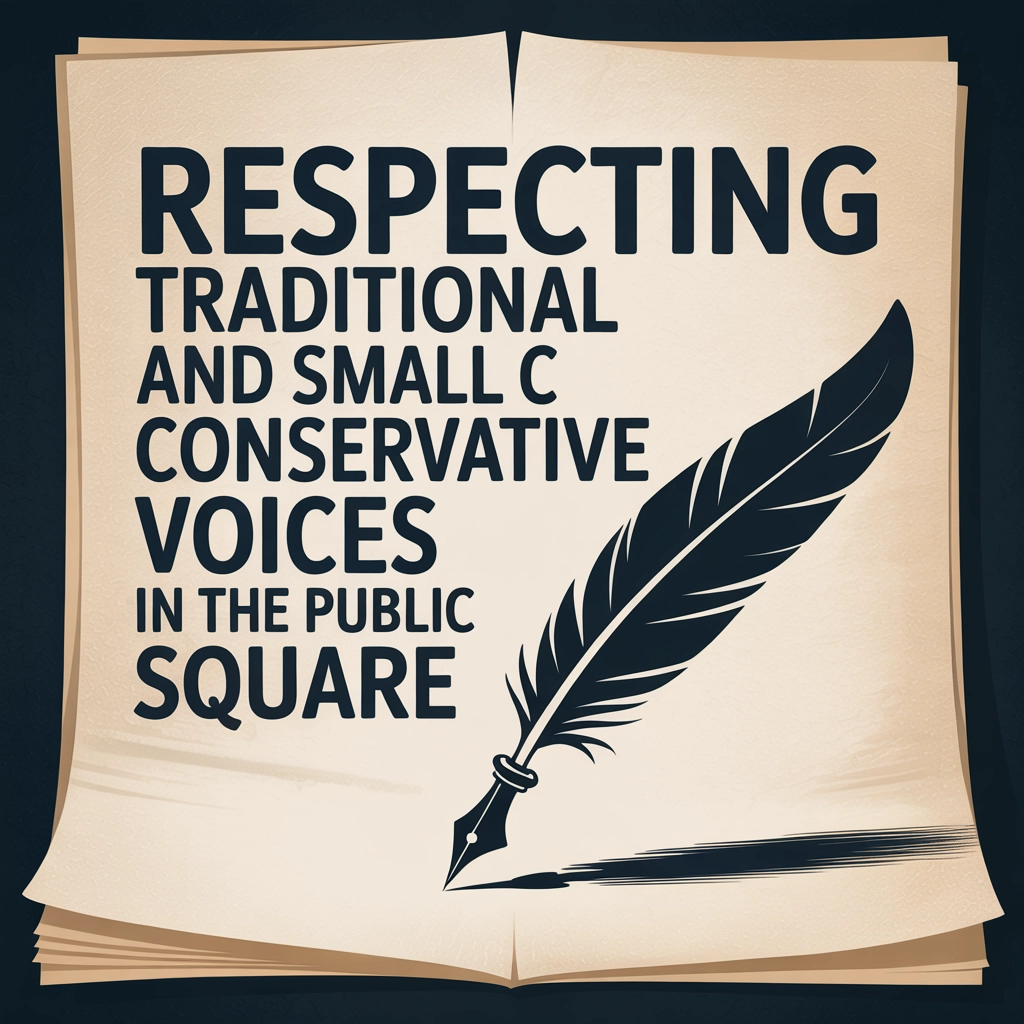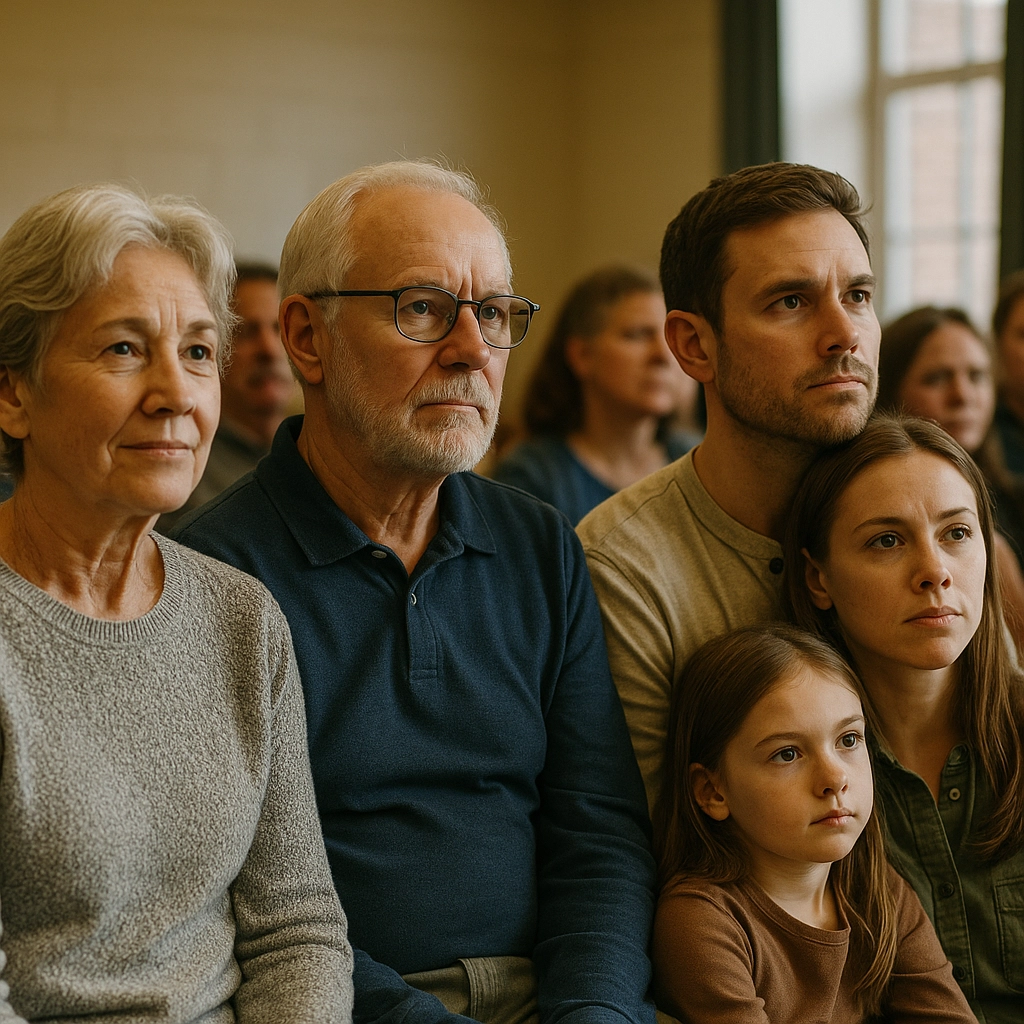
The Challenge: Why Respect Matters in Civic Conversation
If you spend any time in a lively social media thread, a local council meeting or your local pub, you’ll quickly notice how heated discussions can get—especially when it comes to politics, identity, or tradition. In today’s public square, one of the biggest tests facing society is how we treat people who hold traditional or small “c” conservative views.
“Small c” conservatives aren’t always shouters on soapboxes or high-profile MPs. Mostly, they’re everyday people who value continuity, caution about rapid social change, local connections, and a belief in personal responsibility. Their views, like everyone else’s, have a place in any serious conversation about where our communities and wider society are heading.

The Real-World Impact of Marginalising Conservative Voices
At Team Britannia PR, we see first-hand what can happen when traditional viewpoints are shouted down or, worse still, ignored. The result is often alienation—people feeling backed into a corner or forced to hide what they truly think. That’s not democracy at its best; it’s a recipe for division, distrust, and miscommunication.
Over the last decade, social and institutional landscapes have shifted. Liberal-progressive ideas have found strong footholds in media circles, academia, and even corporate life. While that’s provided a platform for reform and modernisation, it’s also, inadvertently, left many with traditional or conservative instincts feeling like outsiders in their own country.
The challenge: ensuring we have a public square that’s not just technically open to all, but genuinely welcoming to different points of view—including those that might make us uncomfortable or challenge the prevailing mood.
Common Misunderstandings: What “Traditional” and “Small C Conservative” Really Mean
Let’s set a few things straight. When we talk about “traditional values” or “small c conservatism”, we’re not just talking about nostalgia or resistance to progress. We’re describing an approach that:
- Values social cohesion over quick change
- Is cautious about completely rewriting tried-and-tested systems
- Sees institutions, local customs, and the rule of law as key to protecting freedoms
- Believes rights come with corresponding responsibilities
Too often, respectful and nuanced conservative voices are lumped in with more strident, populist, or reactionary talking heads. That’s not just unfair—it’s inaccurate. It destroys meaningful dialogue by lazily dismissing people who have a right to be heard.

Why Does Inclusion Matter? Lessons from Democratic Institutions
Healthy democracies thrive on debate. The time-tested tradition of the British Parliament, with its combative yet ultimately respectful exchanges, is built on the idea that no single faction has all the right answers.
If the public square is only open to whatever view is trending on a particular day, we risk groupthink, knee-jerk policy-making, and a dangerous lack of consensus. On the other hand, when all voices—including small “c” conservatives—are invited to the table, we gain:
- Wider Participation: More citizens feel heard, so they stay involved.
- Better Policy: Traditions remind us of what works.
- Greater Social Trust: When people can air their concerns without being shut down, trust in institutions increases.
- Richer Culture: Many of the UK’s greatest social achievements from the abolition of slavery, legislation improving working conditions and the extension of the franchise arose from efforts and tireless campaigning of those we now label traditionalists or conservatives.
The Institutional Tilt: Recognising Unintentional Exclusion
It’s no secret that certain institutions—media, universities, public sector agencies—can tilt heavily towards progressive values. That’s not always by design; sometimes it’s just a function of demographic change or the natural evolution of ideas. But the effect is real.
For example, a study of newsrooms and university staff in the UK highlighted a tendency to favour certain viewpoints over others, often unintentionally. On social media, algorithms reward controversy, which can further marginalise thoughtful traditionalist contributions in favour of clickbait or outrage.
If conservative and traditional voices are ignored or automatically villainised, the public square stops being a place of honest debate and starts operating as a kind of echo chamber.

The Responsibility Goes Both Ways: Raising the Level of Discourse
Respect isn’t a one-way street. For those holding conservative or traditional views, it’s vital to engage in debate thoughtfully—as part of a broader community, not just as critics from the sidelines. We all have a responsibility to:
- Engage in civil, informed debate (rather than ’owning’ the opposition)
- Avoid relying on slogans or stereotypes
- Listen as much as we speak
Only by staying engaged and avoiding provocation for its own sake can any group, including conservatives, earn respect in the public square.
The same is true for institutions and progressive advocates. Genuine inclusion means leaving room for robust disagreement—and treating good-faith arguments on their merits, not dismissing them out of hand.
Quality Discourse: Moving Beyond the Echo Chamber
So, how can communities, workplaces and digital forums do a better job of welcoming traditional and small c conservative voices? Here are a few practical tips backed by our PR experience:
1. More Than Just a Token Seat at the Table
Including a conservative voice on a panel isn’t enough if that person feels like a prop, or their arguments are dismissed with eye-rolling. Participation means being listened to, having your ideas taken seriously, and seeing fair reporting in the media. Genuine inclusion might mean actively seeking input from groups that don’t always get a hearing.
2. Civility as a Superpower
Online and offline, model a conversational style that’s robust but respectful. Setting ground rules, moderating fairly, and fostering an environment where disagreement isn’t a punchline but a pathway to clarity is vital.
3. Support for Nuanced Storytelling
Not all traditional or conservative perspectives fit neatly into a headline or hashtag. The stories people carry—about family life, local heritage, or faith communities—deserve room to breathe. Journalism, PR professionals, and institutions should make space for thoughtful voices, even (especially) when the story is complex.
4. Dismantle Stereotypes—From All Sides
Challenge lazy assumptions about people who hold different views. Not every progressive is “out of touch”; not every conservative is hostile to change. Push beyond caricatures to find the real beliefs and anxieties beneath the surface.

Building a Public Square Fit for Everyone
Creating and maintaining a truly pluralistic, open public square is an ongoing task. It won’t happen by accident, and it isn’t just about who shouts the loudest. At Team Britannia PR, much of our success has come from fostering trust across boundaries—between traditionalists and reformers, young and old, newcomers and established voices.
As PR professionals, we see every day how meaningful inclusion and respectful debate lead to richer campaigns, more engaged communities, and better outcomes for everyone—not just those currently in the majority.
If you’re keen to balance your next conversation or build more inclusive communications for your business or project, check out what we do at Team Britannia PR, or get in touch for a no-obligation chat about how to make your own public square more welcoming for all voices.
Final Thoughts: Tradition and Progress Can Walk Together
The idea isn’t to put the clocks back, or to freeze society in aspic. It’s about recognising that for any community to move forward confidently, it needs a conversation that is wide enough for genuine disagreement. That includes those holding traditional or small c conservative values.
Honour tradition, seek progress, and always leave room for dissent—and you’ll build a better, more resilient public square for everyone.

